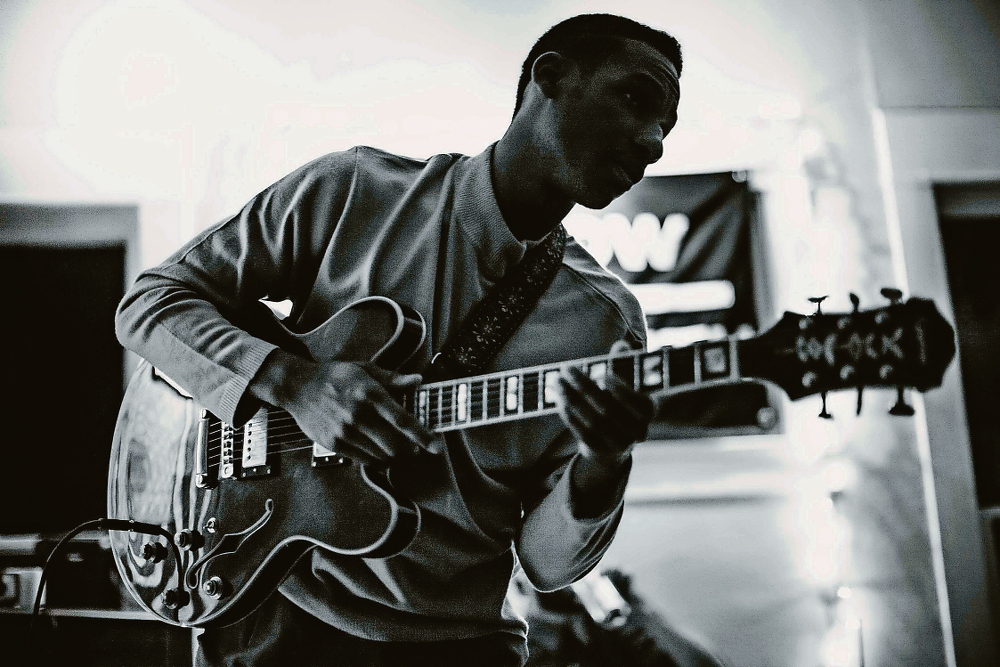Isis controls large areas in Syria and Iraq.
The Future of Soul Music is being connected by phone from Rome, where he is on a European concert tour.
It is late morning and the Future of Soul sounds a bit sleepy over the phone. He is pleasantly obliging in his Texan drawl, with none of the rising-star bullshit one often encounters when critics, your record company and a growing number of intelligent fans across the world are buzzing about you.
The future of soul is Leon Bridges (25), who cut his musical teeth on the indie rock scene in Fort Worth and only discovered soul gods such as Sam Cooke, Marvin Gaye and Al Green fairly recently. He grew up on rock, R&B and hip-hop.
And no, Leon Bridges is no relation to the late King of Kitsch here in South Africa, Bles Bridges, who notoriously raised funds for the Afrikaner Weerstandsbeweging and spawned the even more fascist Sunet Bridges, also allegedly a singer.
It would have been just deserts, though, I thought to myself, because Leon is a black American. There are also no satin roses at his shows like at Bles’s – Leon is one of the most stylish musicians on the scene today. He looks made-in-Instagram-heaven, with Cooke and Gaye’s sartorial eloquence, and is as incredibly handsome as both of them were in their heyday.
There are also clear echoes of Cooke’s honeyed voice in his. As Kitty Empire said in The Observer about his recently released debut, Coming Home: “The 10 songs of his debut are unabashedly old-school: romantic, easygoing, some fast, some slow; pitched at a market that seems insatiable when it comes to the comfort of music that harks back to a simpler age.”
The poster boy of retro-soul
It was his mates in the Texan psych-punk band White Denim who got him into the studio.
“A year ago I was still washing dishes,” he says, still sounding pleasantly surprised that he now finds himself performing at shows packed with retro-soul fans.

Bridges, with artists such as Alabama Shakes and Curtis Harding, is benefiting from a surge of interest in the classic soul sound that harks back to the magnificent days when the Motown, Stax and Philly record labels dominated hit parades around the world.
Bridges’s European tour confirms that his fans cross generations, races and classes, he tells me.
There may be purists who might accuse him of making music that is a mere pastiche of Cooke or a young Gaye’s type of classic soul.
“Those guys, I look at them as a blueprint – I’m inspired by them,” Bridges responds diplomatically. “But I’m carving my own path – a lot of what Sam Cooke did was covers. I’m also wondering what it is to be authentic: anybody who puts their soul, whose music comes from their heart, they’re authentic.”
Soul with substance
In the 1970s, when soul musicians such as Stevie Wonder, Curtis Mayfield and Gaye took artistic control of their music, becoming more album-focused as artists, they also became more political and provided many songs for the soundtrack to black liberation. That is what I find lacking in Bridges’s music.
“I think it should come naturally,” he responds. “Lot of times when you force something, it is not good. It is good to see more soul with substance, not just about girls and monetary things.”
But he doesn’t exclude becoming more “political” in future: “With any genre of music, it is good when you say something meaningful.”
Bridges hopes to tour in South Africa next year. The young soulman is fortunate to have one of the finest A&R people in the local music industry, Duncan Shelwell, working for his Columbia label.
The track Better Man was added to 5FM’s playlist last month, Shelwell tells me later.
Introducing the future of soul
“I’m not sure what the perception is from the younger audience, but it may be they actually don’t have a reference point for the sounds … so it may sound completely new,” Shelwell says.
“Some regional radios are supporting, too. We would love urban/soul radio like Kaya to discover him … we’re working on it.
“I think the evocative music and Leon’s own personal style allowed for a very visual campaign to unfold. The whole thing seems a bit like a supercool Life magazine shoot … The portrayal of Leon’s world is very compelling … you want to discover it, right? And the music doesn’t disappoint – it’s the perfect soundtrack to that place.”